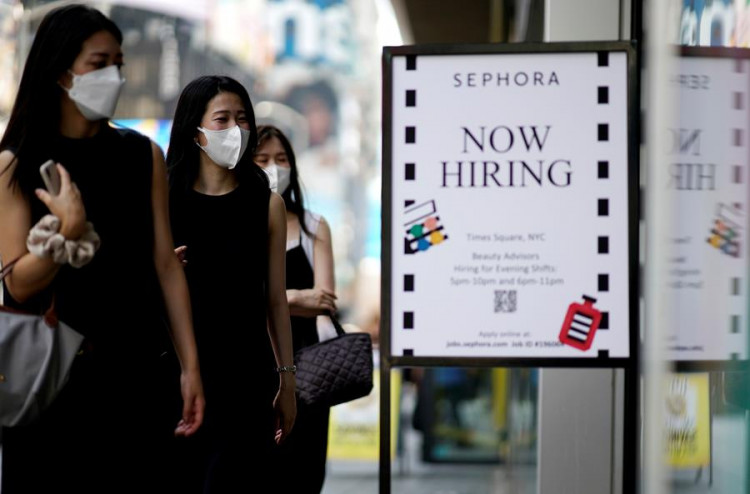Federal workers employed at agencies targeted for downsizing under the Trump administration's Department of Government Efficiency (DOGE) have ramped up their job searches, with applications surging more than 75% above 2022 levels, according to data released Tuesday by the employment platform Indeed.
The spike in activity reflects rising anxiety among highly educated civil servants whose positions face elimination under an aggressive federal restructuring plan led by DOGE. The program, spearheaded by National Security Adviser Mike Waltz, aims to slash government headcount and dramatically reduce federal spending.
"This is a really educated group of job seekers," said Cory Stahle, an economist at Indeed. "We've never seen something like this after a presidential administration and inauguration."
While job applications from federal employees have risen following past transitions of power, the current surge far outpaces prior election cycles. Applications from employees at agencies including the U.S. Agency for International Development (USAID), the Consumer Financial Protection Bureau (CFPB), and the Department of Agriculture (USDA) increased by 60 percentage points between January and February alone.
Indeed analyzed the activity of users who either still work for the federal government or recently left government roles. The company compared recent job-search behavior with 2022 levels, when the labor market was significantly more favorable to job seekers.
Many of the targeted workers hold advanced degrees. Nearly 70% of active federal worker profiles on Indeed in February listed at least a bachelor's degree, with two-thirds of USAID employees holding master's degrees or higher, according to Pew Research. In contrast, only 31.5% of the overall U.S. labor force holds a bachelor's degree or above.
As hiring in white-collar and specialized sectors has cooled, many of these experienced workers are entering a saturated market. "That's creating a friction in the labor market," Stahle said. "It's going to increase the competitiveness."
Specialized roles are particularly hard-hit. Searches for "horticulturalist" and "employee relations" roles saw the fastest growth, suggesting displaced USDA workers and DEI personnel are among those urgently seeking new opportunities.
While Washington, D.C., Maryland, and Virginia are home to nearly 500,000 federal employees, 80% of active job seekers on Indeed were based outside the capital region, including nearly one-third located in the South.
The labor market impact is being watched closely by economists. Claudia Sahm, a former Federal Reserve and White House economist who developed the "Sahm Rule" for identifying early signs of recession through unemployment data, warned of a broader risk to consumer spending.
"Many of them won't lose their job, because we do need a certain number of federal workers to make everything go," Sahm said. "But at this point there are a lot of people who are very uncertain from day to day what their employment is."
"Are they going to go out and buy a house? Are they going to go buy a car?" She added.
Treasury Secretary Scott Bessent said Monday that displaced workers will have opportunities in the private sector. Still, the ripple effects of sudden job cuts could influence broader economic indicators, from consumer sentiment to the unemployment rate.
Although federal employees make up less than 2% of the total U.S. labor force, Sahm warned, "DOGE alone might not cause a recession, but it could lead to one."
"The fast-moving process of DOGE is adding unnecessarily to the risks," she wrote on her blog. "Once they take hold, recessionary dynamics are difficult to avoid and costly to 'fix.'"






